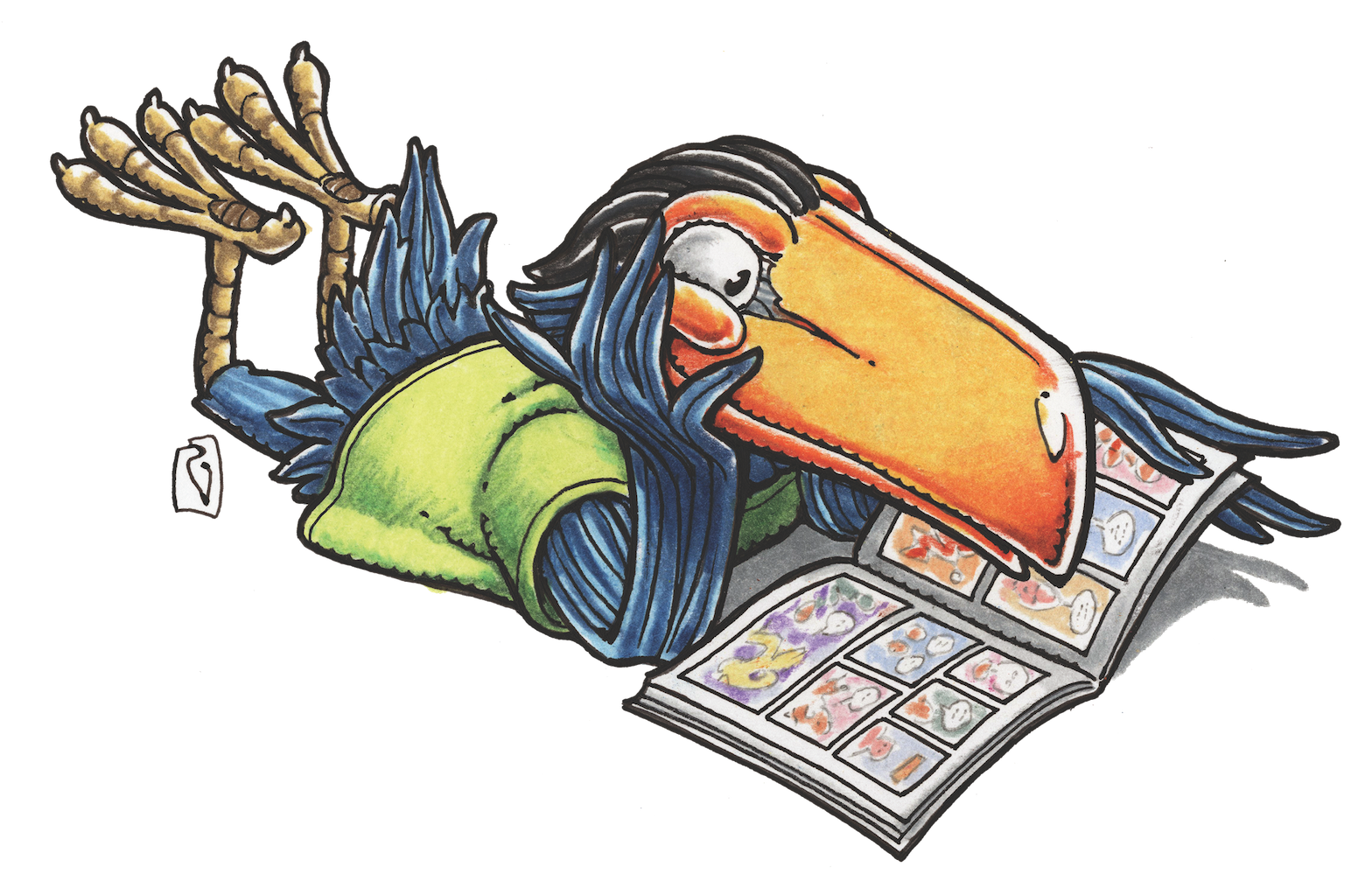STEVE LIEBER’S DILETTANTE
Dilettante 016: From One Artist to Another: Convention Advice


I’ve been asked for this month’s column to write some more about conventions. It’s become traditional in essays like these for a writer to establish his bona fides, so let me start out by saying that I’ve been attending conventions as a professional for a couple of decades now. I didn’t start out as an expert.
I attended my first convention as a working professional was in 1992. I’m pretty sure I made every mistake possible. The hotel where I was staying was quite a distance from the state fairgrounds, where the convention was held. There was a shuttle bus carting over the guests, but I got so caught up reorganizing my portfolio, I missed the last one and had to stand out on the highway and hitchhike there. I caught a ride but “The State Fairgrounds” is a big address. My ride dropped me off by the side of the road and there was a big field and a barbed wire fence between the hall and me. I used my portfolio to get over the barbed wire, but still managed to snag my pants and tear a big hole in the seat. So I stood in the middle of the field and used packing tape to patch my trousers. Did I mention the field was recently fertilized? I walked through a couple hundred yards of that before entering the hall.
Once inside, I learned that you don’t just show up at a convention and get a table. You’re supposed to actually pre-register. The one comics pro I knew in the room was kind enough to let me have a bit of his space, and I repaid him by obnoxiously expanding from the space he gave me, letting my crappy art pile sprawl over into his area on my left, and into that of a well-established artist on my right. That poor guy didn’t know who I was and was justifiably irritated.
I didn’t do much business. No one knew who I was and I wasn’t very good. I spoke disdainfully about a magazine to a guy who turned out to be a writer for that magazine, and I alienated an enthusiastic potential fan by saying something needlessly snarky about (what turned out to be) his favorite TV show. On the plus side, I met a few readers and pros who were genuinely encouraging, and I saw a marketing presentation by the editor-in-chief of a publisher I was working for that helped convince me that I desperately needed to stop working for that publisher. (He was unprepared for a slideshow preview of his own books. An artist who knew this guy was my publisher patted me on the back and walked away, saying “Hitch your wagon to a star.”)
Doesn’t sound encouraging, does it? But I applied what I learned from that convention to make the next one better. And the one after that, and the one after that.
So with that in mind, here are some tips for novice artists just getting started at the whole convention thing.
1: Use Google maps to scout the area in advance.
Find out how close your hotel is to where the convention is being held, where the nearest grocery store is, where can you get a good, cheap meal. Is there an art supply store? Office supplies? A print shop? A shipping center? Google it now so you don’t have to do it using the unreliable web connections that plague convention centers. Asking in advance on social media can be extremely helpful, too.
2: If you don’t have solid social skills, err on the side of listening rather than speaking.
A thoughtful question is always appropriate, and is a lot less likely to alienate anyone than an ill-timed opinion. Remember that in your world, you probably know more about comics than everyone else, but among other comics people, you’re more like a noob.
3: Give yourself a little time to be a fan.
It’s easy to get so caught up with the cost of attending the show that you’re afraid to leave your table. Sunday mornings are generally quiet. Arrive a little early on Sunday so you can walk around the show and see what the other exhibitors are offering.
4: Have a con kit that you keep ready to go.
Don’t raid your day-to-day art supplies; have a separate set of pencils, pens, markers, whatever you use. Print signs and price lists in advance. Even better, print signs with different prices, so that if no one wants your commissioned sketches for $100, you have another sign ready that says they’re $75. Prepare a sales-tracking sheet with rows for everything you’re selling so you can easily keep track of what you sold, and in what quantity. It’ll make it a lot easier to figure out what to bring to your next con.
5: If you have a smartphone, sign up for Square or Paypal Here so you can take credit card payments.
6: Make a business card.
Put your name, contact info, and website on it, along with an example of your art if you’re an artist. This is for the business contact you hope will get in touch.
7: Make another business card or a postcard or a bookmark that has your art, your name and your website on it, and maybe where to find you on your preferred social media.
This is for the readers you hope will seek out your work.
8: At the parties and restaurants and bars after the con, it’s tempting to spend all your time with your friends, with people you already know.
Resist that temptation. Talk to the people you don’t know. Have conversations with fans, with retailers, with artists and writers you’ve only just met, with podcasters, bloggers, and critics. Ask questions. Listen to unfamiliar opinions. Expand your circle.
9: Make some time every morning before the show to get some exercise.
Visit the hotel gym or take a walk. You’re probably going to spend most of the weekend in a state of hyper-vigilance, changing your mode of interaction with everyone who visits your table, trying to recall the names of people you might have met before, doing sketches, making change, watching the clock for whatever panels or signings you’ve agreed to do, watching out for that one annoying guy, carefully measuring out exactly how much attention you can bring to each interaction. The time you spend doing crunches or walking around the city is likely to be the only time your brain won’t be racing to keep up with everything around you. There’s always a lot going on at a convention. You’re going to appreciate having a few moments when there isn’t.
What tips do you have for new exhibitors in Artists’ Alley? I’d love to hear your thoughts! Share them with me on Twitter @steve_lieber, or Facebook.
Steve Lieber’s Dilettante appears the second Tuesday of each month here on Toucan. Steve is a special guest at WonderCon Anaheim 2014, and will be appearing in Artists’ Alley and on panels. Click here to purchase badges for WCA. Badges are available only on online this year. Badges will not be sold at the door.